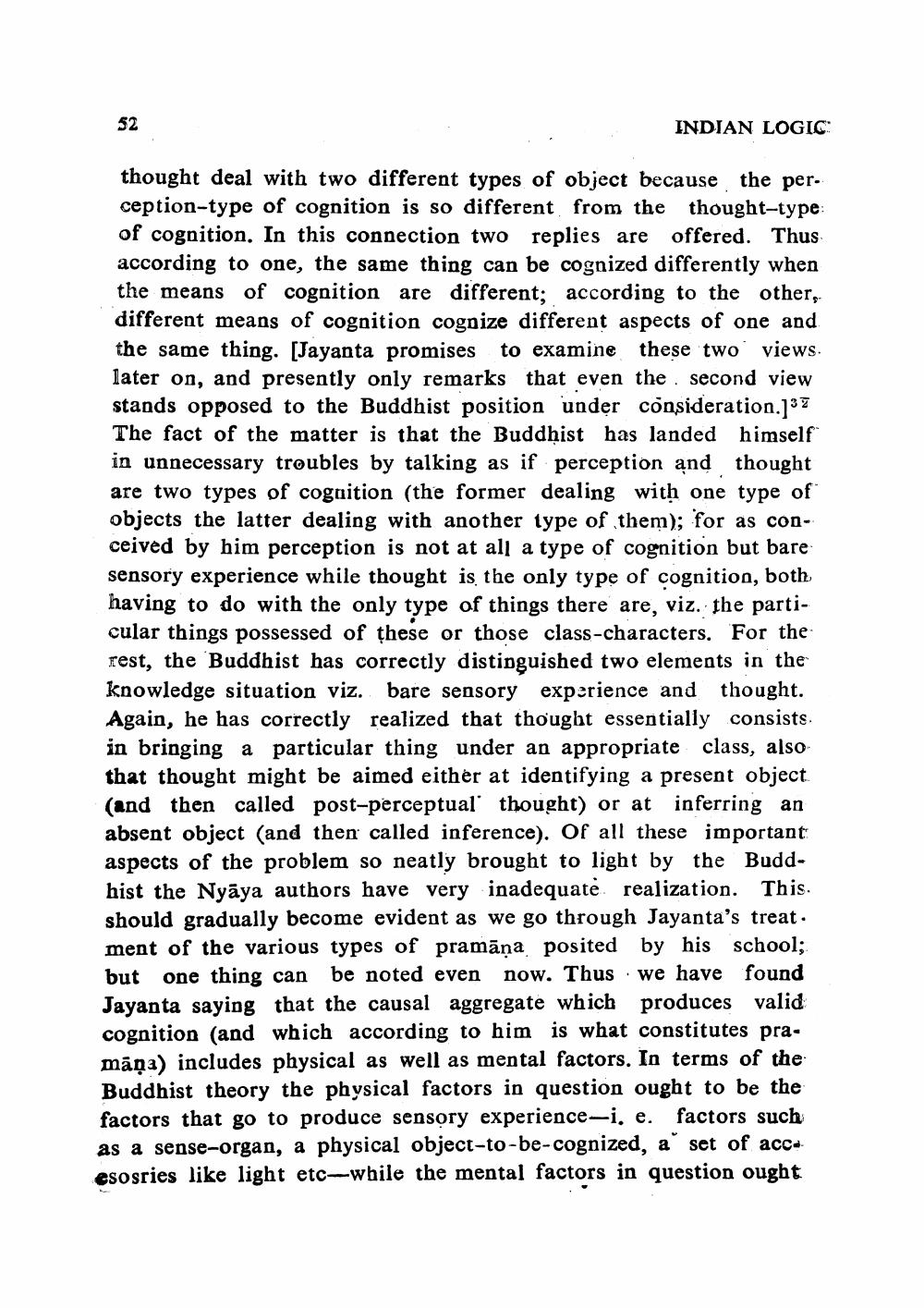________________
INDIAN LOGIC
thought deal with two different types of object because the per. ception-type of cognition is so different from the thought-type: of cognition. In this connection two replies are offered. Thus according to one, the same thing can be cognized differently when the means of cognition are different; according to the other, different means of cognition cognize different aspects of one and the same thing. [Jayanta promises to examine these two views. later on, and presently only remarks that even the second view stands opposed to the Buddhist position under consideration.]37 The fact of the matter is that the Buddhist has landed himself in unnecessary troubles by talking as if perception and thought are two types of cognition (the former dealing with one type of objects the latter dealing with another type of them); for as conceived by him perception is not at all a type of cognition but bare sensory experience while thought is the only type of cognition, both having to do with the only type of things there are, viz. the particular things possessed of these or those class-characters. For the rest, the Buddhist has correctly distinguished two elements in the knowledge situation viz. bare sensory experience and thought. Again, he has correctly realized that thought essentially consists. in bringing a particular thing under an appropriate class, also that thought might be aimed either at identifying a present object (and then called post-perceptual* thought) or at inferring an absent object (and then called inference). Of all these important aspects of the problem so neatly brought to light by the Buddhist the Nyāya authors have very inadequate realization. This. should gradually become evident as we go through Jayanta's treat. ment of the various types of pramāna posited by his school; but one thing can be noted even now. Thus we have found Jayanta saying that the causal aggregate which produces valid cognition (and which according to him is what constitutes pra. māņa) includes physical as well as mental factors. In terms of the Buddhist theory the physical factors in question ought to be the factors that go to produce sensory experience-i. e. factors such as a sense-organ, a physical object-to-be-cognized, a set of acc. esosries like light etc-while the mental factors in question ought




